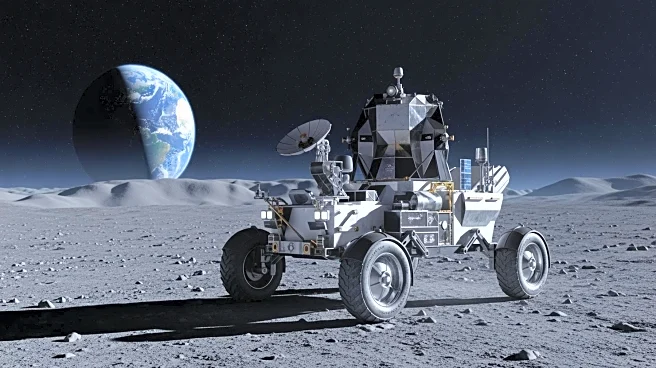What's Happening?
During the Lunar and Mars Economy Summit, former NASA chief Jim Bridenstine emphasized the strategic importance of the Moon for national security missions. He argued that the U.S. should capitalize on lunar
real estate for sensor deployment, despite concerns about militarization. Bridenstine highlighted the U.S.'s lag behind China in lunar exploration and stressed the need for a coherent strategy to compete effectively. He pointed out the misalignment between political rhetoric and contractor deliverables, urging for a more focused approach to lunar missions. The summit also featured discussions on the financial implications of lunar infrastructure, with predictions of significant investment requirements.
Why It's Important?
Bridenstine's remarks underscore the geopolitical significance of lunar exploration, as nations vie for strategic advantages in space. The Moon's potential for sensor deployment could enhance national security capabilities, influencing defense policies and international relations. The discussion on investment highlights the economic opportunities in the lunar sector, with potential for substantial returns in areas like liquid oxygen sales and data-center development. This focus on lunar infrastructure could drive innovation and growth in the space industry, attracting new investments and partnerships.
What's Next?
The U.S. may need to reassess its lunar exploration strategy to effectively compete with China. This could involve increased funding for lunar missions and technological advancements to expedite progress. The Department of Defense is expected to invest more in lunar remote sensing capabilities, reflecting the strategic importance of the Moon. The summit's insights may influence future policy decisions and investment strategies, as stakeholders seek to capitalize on lunar opportunities.
Beyond the Headlines
The debate over lunar militarization raises ethical and diplomatic questions about the use of space for defense purposes. As nations expand their presence on the Moon, international agreements and norms may need to evolve to address these concerns. The focus on lunar infrastructure also highlights the potential for space tourism and entertainment, suggesting a shift towards more commercial and civilian uses of space. This could lead to broader societal engagement with space exploration, fostering a culture of innovation and discovery.









